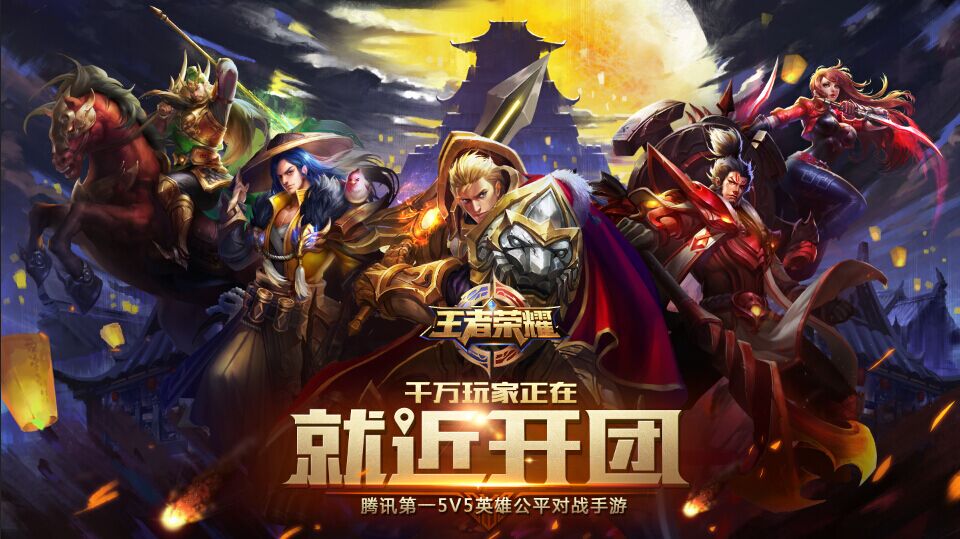A court in China has upheld that Tiktok parent company Bytedance is liable for IP breach on its platform in a Tencent lawsuit, setting more precedent for the conversation around fair use and social media.
According to cnBeta, the argument is something anyone following the fair use debate in the past decade should be familiar with- users were uploading content of Tencent’s extremely profitable mobile game, Honor of Kings, to Daoyu, the Chinese counterpart to TikTok. According to the lawsuit, Tencent claims you don’t own the rights to gameplay footage, and considers this a breach of copyright, ordering Bytedance to remove it from their platform.

Bytedance, however, has argued in the past that they have no need to remove it, since all content uploaded to Daoyu is the copyright of the uploader, finally leading to the court case where the judge ruled in Tencent’s favor.
Following the decision, Bytedance’s parent company was ordered to pay 500,000 Yuan (RM326,355) in damages, as well as and additional 100,000 Yuan (RM65,271) for “reasonable expenses for the maintenance of rights” (which I assume is polite speak for breach of copyright).
According to Toutiao, however, Bytedance intends to appeal the court’s decision, on aforementioned grounds that users own the copyright to their content, making Bytedance not liable.
via Wanuxi
Social Media, Fair Use And Metallica (Editorial)
Suffice to say, this ruling has a harrowing effect on how companies view social media. Platforms like Twitch which literally built their value from streaming games have long been suffering under crackdowns for fear of lawsuits like this. This has lead to things like overly automated processes, constant fears of demonetization and the laughably dystopian image of Metallica having to mute their own live concert for fear of being DMCA-claimed.
It comes at a weird time, too, as video games continue to grow as an industry- you can’t look at the popularity of games like Among Us and not argue that independent streamers have a role in the modern gaming ecosystem. If this ruling were applied to the industry as a whole, you’d have a case of only corporate-approved streamers promoting video games on corporate-approved platforms, losing the entire origin of streaming in favor of something wholly sterile.
The argument against this kind of action has always been this: By uploading footage of yourself playing a game, you’re adding a transformative element to the gameplay, making it fall under fair use. It’s the same way how performing Rocky Horror Picture Show on stage doesn’t mean you’re ilegally using the IP of a black corset- you’re not stealing the clothes, you’re using them for the bigger picture, which is your performance of the show.
Sadly, this isn’t the first salvo in this discussion. For years, games have had the ability to block being streamed on the PS4, due to companies that have this same belief. Despite universally benefiting them, big companies don’t seem to like any kind of marketing they have no control over, and would rather lose it than risk one person with a fake accent saying their game was bad.











![[SEA Exclusive] From Shadows to Shipwrecks – Jennifer English Talks About Bringing Emotional Depth to Clair Obscur: Expedition 33](https://cdn.gamerbraves.com/2025/04/Clair-Obscur-Jennifer-English_Interview_FI-360x180.jpg)

![[EXCLUSIVE] Do the Game Interview – An Intimate Look at the Challenges of Game Development](https://cdn.gamerbraves.com/2025/04/Do-the-Game_Interview_FI-1-360x180.jpg)
![[EXCLUSIVE] Interview with the Minds Behind of Den of Wolves – 10 Chambers’ New Sci-Fi Heist FPS](https://cdn.gamerbraves.com/2025/04/Den-of-Wolves_Interview_FI-360x180.jpg)










![[GUIDE] Finding Alma’s Lost Glasses in The Apple of Her Eye Side Quest](https://cdn.gamerbraves.com/2025/04/Alma-Glasses-Quest_Gudie_FI-360x180.jpg)



![[GUIDE] Farming Nightflower Pollen in Monster Hunter Wilds](https://cdn.gamerbraves.com/2025/03/MHWilds-Pollen_Guide_FI-360x180.jpg)